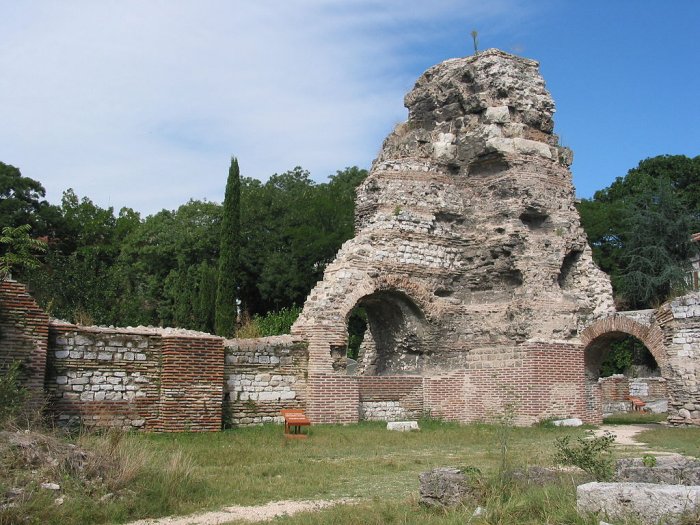Jan Bartek – AncientPages.com – Bulgaria’s rich history spans approximately 6,000 years, during which numerous influential civilizations and empires have left their mark on the region. This diverse heritage has shaped the country’s cultural landscape over millennia.
Varna, a city on the Black Sea coast, exemplifies this historical significance. It has played a crucial role since ancient times and remains historically important today. The city is renowned for its well-preserved Roman baths, dating back to the late 2nd century AD. These ruins serve as a tangible link to Bulgaria’s Roman past and offer valuable insights into the architectural and cultural practices of that era.
Ruins of the Roman Thermae in Varna, Bulgaria. Credit: Wikipedia – CC BY-SA 3.0
The Roman baths in Varna are just one of many historical sites that dot the Bulgarian landscape. Each tells a unique story of the various peoples and empires that have influenced the region throughout its long and complex history.
A Roman sarcophagus was recently discovered on a beach along the northern Bulgarian Black Sea coast, presenting an intriguing archaeological find. The artifact, measuring 90 x 235 x 75 cm, was spotted by a tourist, a former law enforcement officer, who promptly alerted the authorities.
The Bulgarian Interior Ministry reported that police, the Varna Archaeological Museum experts, and a Culture Ministry’s Directorate for the Protection of Cultural Heritage representative inspected the site and the historical object. Upon examination, the sarcophagus was determined to date back to the Roman era, likely from the 2nd or 3rd century AD.
The artifact features elaborate decorative elements on all four sides, including stylized ornaments such as garlands, leaves, grapes, and animal heads. This rich relief decoration is characteristic of Roman funerary art from that period.
The sarcophagus was found near a recently completed construction site, though the circumstances of its appearance on the beach remain unclear. Its presence in this unexpected location has raised questions about its origin and how it came to be there.
Following the inspection, the substantial artifact was transferred to the Varna Archaeological Museum for storage, where further examinations are scheduled to be conducted.
Credit: Bulgaria Ministry of Interior
Milen Marinov, an expert affiliated with the local history museum and a member of the team tasked with examining the sarcophagus, told the Bulgarian News Agency that the paint removal process has commenced.
“We want to see what is under it, whether any of the original coloring has remained, what technique was used to make it – all of the information that will tell us if the sarcophagus is authentic. We have just started, we can’t say anything for sure,” he said.
See also: More Archaeology News
The museum specialist explained that the sarcophagus could be “authentic, a restored authentic piece, or a commissioned reproduction designed to emulate antiquity.”
He further noted, “There exist numerous methods to artificially age an object to give it the appearance of antiquity.”
Written by Jan Bartek – AncientPages.com Staff Writer






